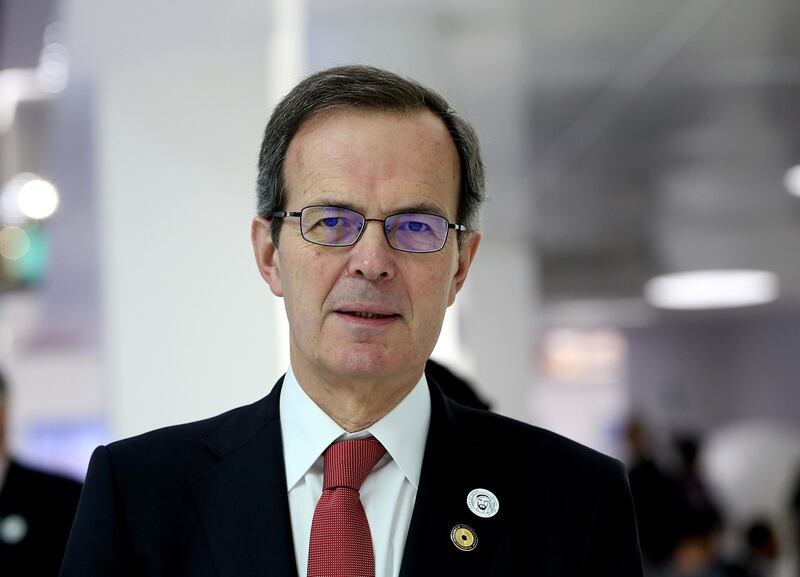Spanish energy firm Cepsa, which is owned by Mubadala Investment Company and is partner on a pipeline supplying Algerian gas directly to Europe, plans to bring on stream additional capacity soon, its chief executive said.
"Nominal capacity presently is 8 billion cubic metres this year and would be increased with the new compressor to 10.5 bcm," Pedro Miro told The National.
"The pipeline has three compressors, one operational, one idle and one spare one. It will increase the throughput of that pipeline by 20 to 25 per cent,” he said, declining to give a timeline for the additional supply.
Final decision on the additional capacity has not been taken but Mr Miro said the scheme “was almost done” as soon as the new compressor was installed.
Cepsa has a 42 per cent interest in the Medgaz pipeline in a consortium led by Algeria’s state-owned Sonatrach, which holds the majority 45 per cent stake. The deepwater pipeline is the first to transport gas directly through Europe without bypassing other territories. It sources the fuel from the large Hassi R’mel field in the north of the country to the Beni Saf port, and from there eventually making landfall in Almeria in the south eastern coast of Spain.
The additional supply through the pipeline comes amid possibilities of ramping up gas production on a newly appraised block in Algeria.
"It’s enough to consider commerciality,” Mr Miro said.
________________
Read more:
[ Abu Dhabi-owned Cepsa looks at $500m spend for global speciality chemicals business ]
[ Exclusive: Mubadala to take investment decision on $6bn Pakistan refinery ]
[ Cepsa and Adnoc to consider LAB complex at Ruwais refinery ]
________________
The Spanish company launched in March Timimoun, its first natural gas field in Algeria, with an expected daily output of five million cubic metres at maximum production. The field will have Sonatrach as the majority partner with a 51 per cent interest and France's Total as a 37.75 per cent partner, with Cepsa holding the remaining stake. The field will consist of 37 producing wells that are expected to feed into the Medgaz pipeline from the Hassi R’mel field.
"We have done quite a lot of [appraisal] on that block and made a discovery, which extends beyond our block,” said Mr Miro.
In January, Cepsa and Sonatrach also signed an exploration contract with Alnaft, the National Resources Development Agency of Algeria, to operate the Rhoude el Krouf oilfield in the eastern Berkine basin.
The 25-year agreement will see significant “redevelopment of a mature oilfield", which had been in production for 25 years, Cepsa said in a statement at the time. The project is expected to cost $1 billion and will have 30 newly-spudded wells with treatment facilities expected to have a collective capacity of 24,000 barrels of oil per day.
Algeria has Northern Africa’s largest proven reserves of gas estimated at 4.3 trillion cubic metres, which accounts for 2.2 per cent of global resources. Total gas production last year was around 91.2 billion cubic metres, the highest in all of Africa.







